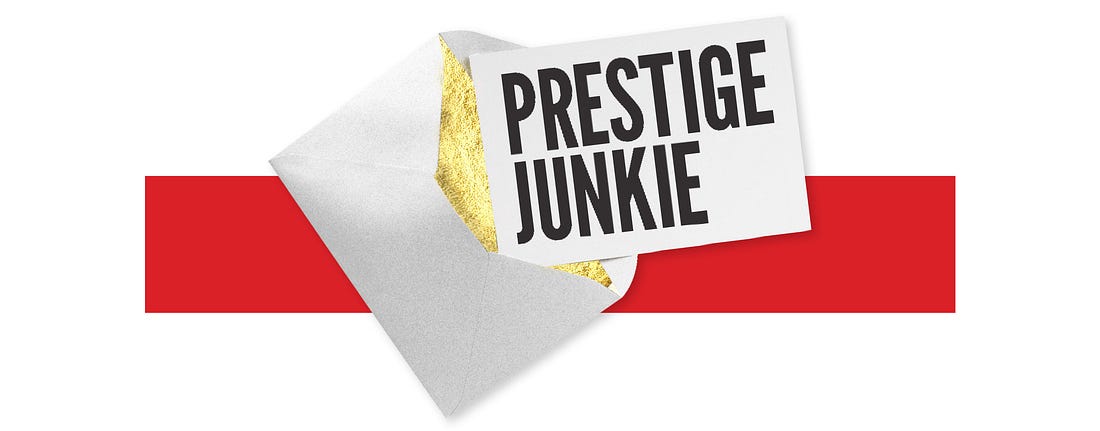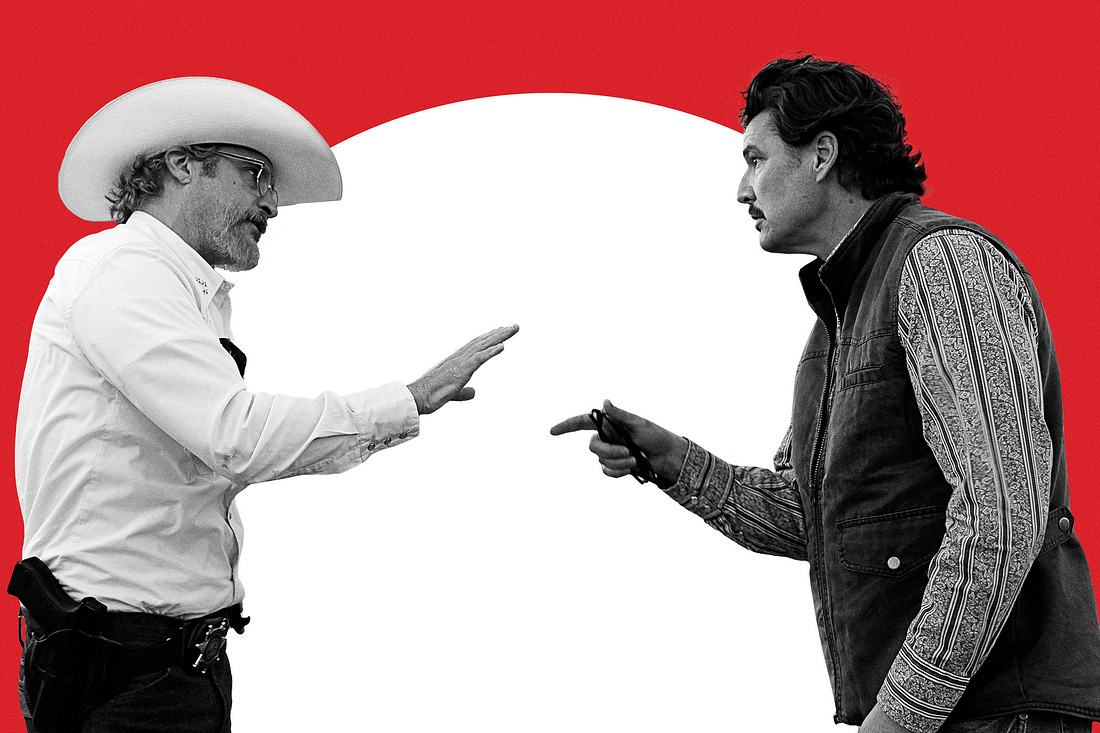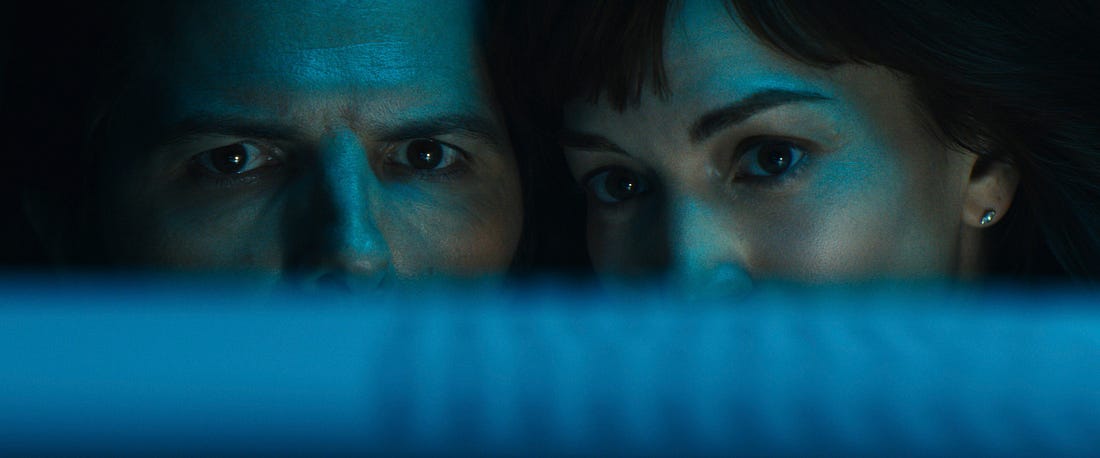A Case for Bleak TV & Feel-Bad EntertainmentI finally got up my courage to watch 'The Pitt', finding catharsis and community in dark shows. Plus: Every awards show now has a good host!Before I dive in today, a quick congratulations to Nate Bargatze — but even more so to the Television Academy, which successfully hired the world’s best-selling stand-up comedian to host September’s Emmy Awards. Bargatze, with his pointedly apolitical and family-friendly comedy, is a good fit for the awards show that’s been leaning into nostalgia and everybody-gather-round-the-TV populism in recent years. “I’m beyond excited to work with CBS to create a night that can be enjoyed by families around the world,” Bargatze said in a statement announcing his hiring, basically promising he’ll deliver something pretty different from Nikki Glaser at the Golden Globes. With Glaser returning for next year’s Globes and Conan O’Brien already re-hired for the 2026 Oscars, that’s Hollywood’s three biggest awards shows now set with strong, distinctive hosts. That’s a pretty good way to guarantee your awards show has an identity, and by hiring Bargatze, who absolutely could make more money by spending that night doing standup, the Emmys are making a pretty solid argument for their own relevance, too. Now onto some of the shows that will inevitably be mopping up awards at that Emmys telecast — go ahead and get your jokes ready, Bargatze. The Stress and Saving Grace of The Pitt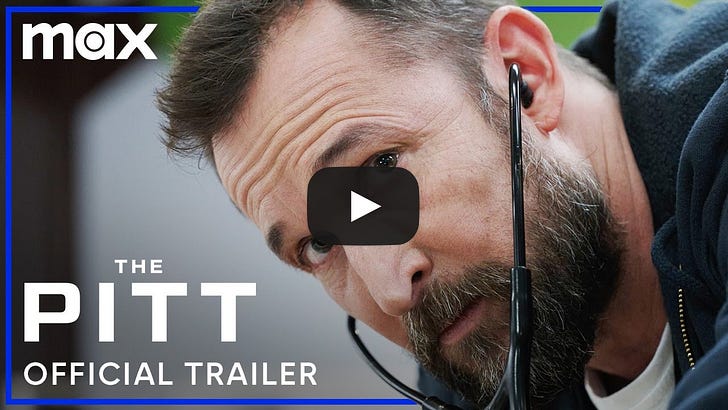 This week it was finally time for me to suck it up and face my fears. It was time for me to get into The Pitt. I watched the first two episodes of the breakout Max medical drama a few months ago, prompted by the literal dozens of people — both TV critics and real-life friends — who had fallen hard for the series led by Noah Wyle. What I found was a show that was gripping and deeply human, following the hardworking staff of a Pittsburgh emergency department through one particularly grueling day, hour by hour, over 15 episodes. Wyle is joined by an exceptional supporting cast, nimble camera work that makes incredible use of the limited hospital setting, writing that balances the adrenaline rush of medical emergencies with personal moments and even the occasional dose of humor. It is also, as you might have guessed, incredibly stressful to watch. In the first episode alone, we see a bloody ankle snapped back into place (a moment so intense even one of the doctors faints) and uncontrollable vomiting, plus flashbacks to Wyle’s character Dr. Robby during the traumatic early days of the pandemic. Though the go-go-go nature of the show relegates it to the background for most episodes of The Pitt, the driving assumption is that Dr. Robby is permanently scarred by his experiences during Covid-19 and has yet to grapple adequately with any of it. Which is why, weird as it may sound, I immediately thought of The Pitt when watching the trailer for Ari Aster’s new movie Eddington, which was announced as part of the Cannes Film Festival last week: 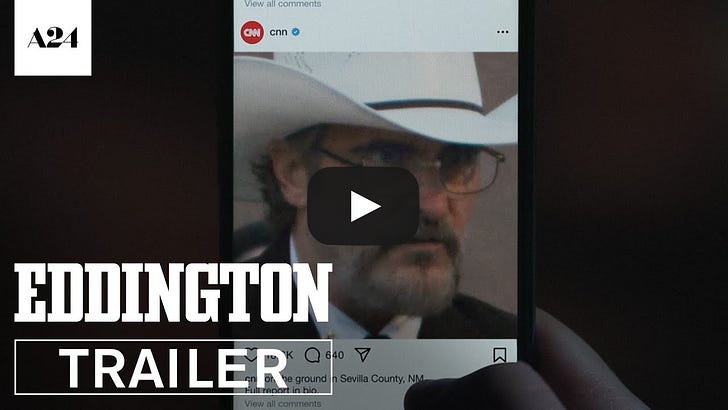 From the moment the TV announcer says the words “Wuhan, China,” you feel it, don’t you? A feeling of disorientation or vague panic, or frustration at something you can’t quite name. While The Pitt is a post-Covid series, Eddington seems to be set right in the thick of it, showing lead actor Joaquin Phoenix as both a posturing, gun-loving small-town sheriff but also a guy doing something extremely relatable from that period of time: scrolling Instagram on his phone. I haven’t seen Eddington yet — following its Cannes premiere, it will be in U.S. theaters on July 18 — but I’ve seen enough of Aster’s other films, like Midsommar and Beau Is Afraid, to guess it will be just as stressful as it seems in this trailer, if not more so. And it will draw in an audience who wants exactly that. Beau Is Afraid may have underperformed at the box office, but Aster has quickly established himself as a name-brand director of deep discomfort, inspiring the devotion of cinephiles and some of A24’s best merch. People will go see Eddington not despite the fact that it will make them uncomfortable, but because of it. So here we are, a nation revering Ari Aster, grimacing through the bloodiest sequences on The Pitt, and even cringing through our comedies like The Studio and The Bear. Why are we looking for so much feel-bad entertainment these days? Bleaker Street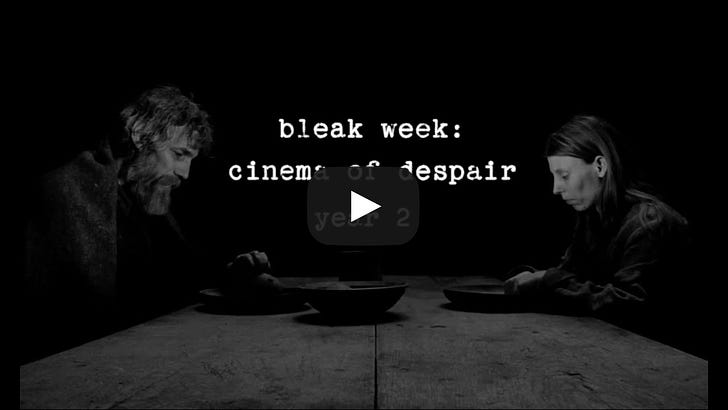 For the thousands of L.A. moviegoers who have been flocking to a screening series called Bleak Week each June, this turn toward darkness is no surprise. In 2022 the American Cinematheque started celebrating L.A.’s famed “June Gloom” with a film series featuring some of the most harrowing films ever made, from post-World War II European dramas to modern ventures into darkness such as Manchester by the Sea and Seven. Audiences showed up in droves. American Cinematheque artistic director Grant Moninger knew exactly why. “It was a time where we were coming out of the pandemic and everyone said, ‘Everyone wants to see a comedy,” Moninger remembers. “And we were like, well, maybe what if we just did the opposite? I think a lot of people trying to figure out what was going on in their lives, or what was going on in the world, started gravitating to some of this deeper cinema. And it hasn’t gotten any brighter in the world since, so we haven’t had to reverse course.” This year Bleak Week is going international, expanding to seven additional American cities as well as London; Happiness director Todd Solondz and Robert Eggers, whose pitch-black Nosferatu was a surprise box office hit last year, are among the special guests. Obviously not every moviegoer is looking to plumb the depths of human despair. The #1 movie in the world right now is, of course, the gleefully surface-level A Minecraft Movie, while the streaming charts are led by Moana 2 and Amazon’s white-guy-with-a-gun hit Tracker. There will always be an audience for escapism, and you could argue that with the way the first few months of 2025 have been going, we need it more than ever. But it’s hard not to notice that when something hits a pop culture nerve these days, it’s often bleak, cynical, darkly funny — or a combination of all three. The second season of Severance was a viral hit this winter, investing audiences in an unlikely love triangle that the finale then blew up, ending on a freeze-frame of our ostensible heroes Mark (Adam Scott) and Helly (Britt Lower) running toward a happy ending that will almost certainly never come. Severance fever was followed immediately by a blockbuster season of The White Lotus, which ended on the same cynical note as all the previous seasons: Money’s corrupting influence is almost impossible to escape. We’ve got a hit superhero show but it’s The Penguin, set in the world of Batman but focused on the villain (played by Colin Farrell) and with no caped crusader coming to save the day. We’ve got returning shows with despairing visions of our future, from the societal collapse of The Last of Us to the scarily believable totalitarianism of The Handmaid’s Tale. We’ve got two different Netflix limited series hits in which young boys in police custody deliver devastating monologues in a single take: Monsters: The Lyle and Erik Menendez Story and Adolescence. 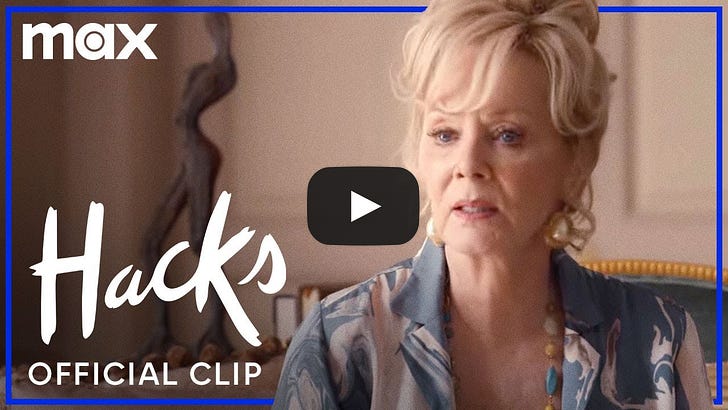 Even the comedies have some flavor of excruciating. Without getting into the endless debate about whether The Bear is actually a comedy, you can look at brutal insults hurled between Deborah (Jean Smart) and Ava (Hannah Einbinder) on Hacks, or the many many painfully awkward scenes on The Studio in which Seth Rogen’s studio executive tries and fails to do his job correctly. The Four Seasons, debuting on Netflix May 1, stars comedy legends like Tina Fey and Steve Carell but captures very real fears about marriages in decline. Netflix’s A Man on the Inside and FX’s Dying for Sex, two of the funniest shows I have seen in the past year, are also among the most emotionally devastating. In some ways, this is just what television is now. We may have moved out of the Peak TV era, when the boldest and weirdest ideas somehow made their way to the screen. But the tropes of that period — antiheroes, dark comedy, devastating twists — have clearly stuck with us. Light at the End of the Tunnel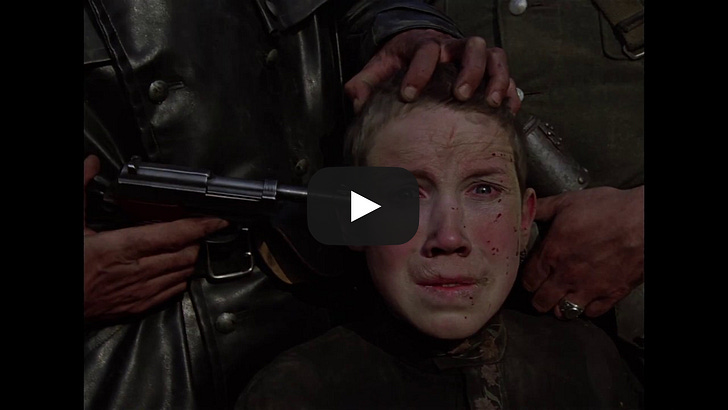 Amid all of that darkness, however, there is the light that makes it worth it. After Bleak Week showings of true heartbreakers like Come and See, Moninger imagines the audiences gathering outside the theater together, processing what they’ve just seen. After devastating episodes of Severance like “Chikhai Bardo,” the Reddit boards lit up with people wanting to talk about what they’d just been through. How many people do you know who have told you that Adolescence wrecked them, but insisted on you watching it anyway? “These are the types of films that you want to experience with a room full of people,” says American Cinematheque’s Chris LaMaire about their Bleak Week programming, some of which is even darker than Adolescence, believe it or not. “There’s very much a strong communal aspect to experiencing some of the worst things that happened in humanity, but amongst others.” It makes me think of the final scene from The Pitt, in which a group of doctors, Robby included, gather in the park across the street for a few beers and decompression. After treating the victims of a mass shooting, they’ve just been through the worst day of their lives but they’re not quite ready to shake it off. They look each other in the eye, confirm that they all got through it together and share a moment of community before moving on. Luckily, most of us haven’t been through quite the same kind of hell as the doctors on The Pitt, but it’s been an undeniably rough decade so far — and with a future that seems hazier every day. It’s going to take us a long time to process what we’ve all been through. In the meantime, though, we can talk about an episode of TV that made us feel a fraction of it. Then you need some actual uplift. After Bleak Week, the American Cinematheque programs the Paddington movies: They call it the Marmalade Chaser. Personally, I’ve been saving the multi-cam comedy Mid-Century Modern for this exact purpose. Feel free to send me your own suggestions too. Follow us: X | Facebook | Instagram | Threads | Bluesky | YouTube | TikTok | WhatsApp ICYMI
Like & Subscribe, a creator economy newsletter
The Optionist, a newsletter about IP |

